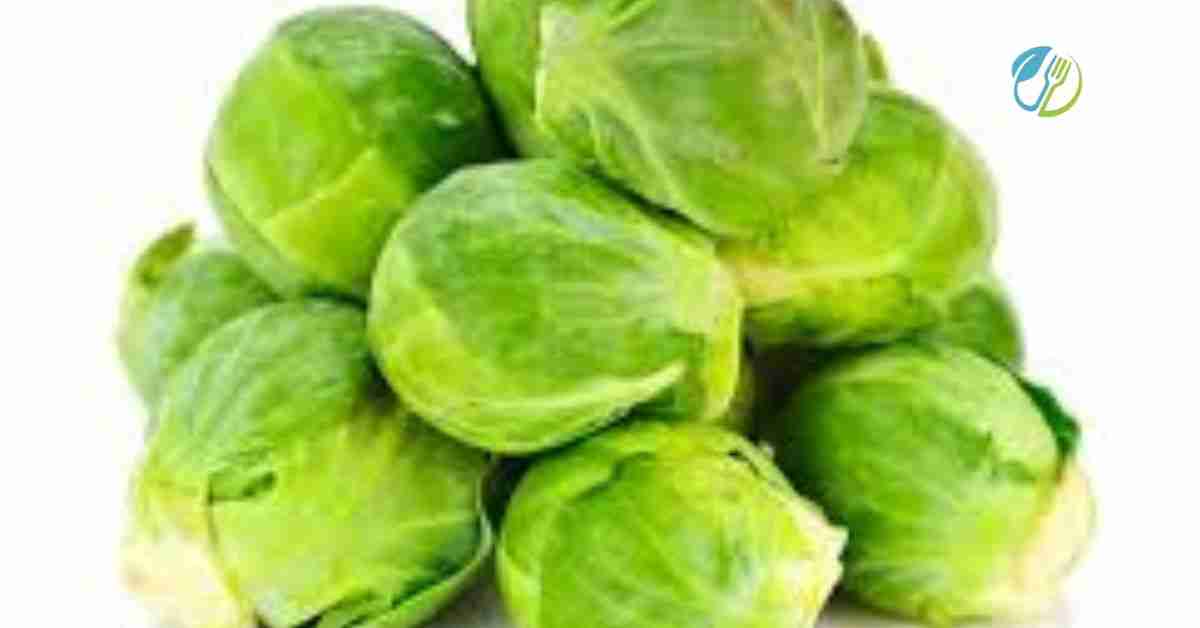Potassium is a mineral that is found in many foods. It keeps the heart beating regularly. While some foods are rich in potassium, many have low potassium content. So the question is, how much potassium does brussel sprouts have?
Potassium is one of the vital minerals that the body needs. It helps to maintain fluid balance and allows the nerves and muscles to work properly.
Brussels sprouts are a popular vegetable known for their unique taste and numerous health benefits. One of the key nutrients found in Brussels sprouts is potassium.
In this guide, we will explore the potassium content in Brussels sprouts and its impact on your health.
Recommended: Is cabbage rich in potassium?
What is potassium?
Potassium is an essential mineral important for the maintenance of several body processes.
It is an electrolyte that aids in controlling neuron activity, muscular contractions, and fluid balance.
Potassium also supports heart health and helps lower blood pressure.
Potassium Content in Brussel Sprouts
Brussels sprouts are an excellent source of potassium. A 100-gram serving of raw Brussels sprouts contains approximately 389 milligrams of potassium. This makes Brussels sprouts one of the top potassium-rich vegetables.
389mg of potassium in 100 g raw brussel sprouts corresponds to 8% of the potassium recommended daily allowance (RDA)
For a standard serving size of one cup (88 g), the amount of potassium is 342.32mg, which translates to a 7% RDA portion.
Here is a list of the top five Brussels sprout foods based on how much potassium they have in 100 grams.
1. Raw Brussels sprouts: 389 mg (8% of the RDA)
2. Brussels sprouts, frozen and raw: 370 mg (8% of the RDA)
3. Brussels sprouts, cooked, rinsed without salt: 317 mg (7% of the RDA)
3. 317 mg (7% RDA) of cooked, boiled, rinsed Brussels sprouts without salt
4. Brussels sprouts cooked, boiled, rinsed, and salted: 317 mg (7% of the RDA)
5. Frozen Brussels sprouts that have been boiled, rinsed, and cooked but not salted: 290 mg (6% of the RDA)
Health benefits of potassium
Eating enough potassium is good for your health in many ways, such as:
- Controlling the blood pressure
- Keeping the heart healthy
- lowering the risk of developing stroke
- Getting muscles to work right
- improving bone health
Incorporating brussels sprouts into your diet
You can eat Brussels sprouts in many different ways, and they taste great. Here are some ways you can use Brussels sprouts in your food:
Caramelized Brussels sprouts: Add olive oil, salt, and pepper to the Brussels sprouts, and then roast them in the oven until they get crispy.
Brussels Sprouts Salad: Shred Brussels sprouts and mix them with your favorite salad ingredients for a refreshing and nutritious salad.
Stir-Fried Brussels Sprouts: Sauté Brussels sprouts with garlic, soy sauce, and your choice of protein for a quick and healthy stir-fry.
Can I get enough potassium from Brussels sprouts alone?
Even though Brussels sprouts are a good source of potassium, it’s still important to eat a range of foods that are high in nutrients.
Incorporating other potassium-rich foods such as bananas, sweet potatoes, and spinach can help ensure you meet your daily potassium needs.
Are there any risks associated with consuming too much potassium?
While potassium is essential for good health, consuming excessive amounts can be harmful, especially for individuals with kidney problems.
It is important to consult with a healthcare professional to determine the appropriate potassium intake for your specific needs.
Foods that are higher in potassium—cantaloupe, watermelons, oranges, all dried fruits and fruit juices, avocados, tomatoes, potatoes (both smashed and mashed with butter), Brussels sprouts, milk, yogurt, lentils, and most nuts (except peanuts)—are all high in potassium content.
The foods listed above have more than 200 mg of potassium per serving, so you should stay away from them or eat very little. Yes, these foods are healthy, but they won’t be good if your kidneys can’t handle the potassium.
A process of “leaching” can reduce the amount of potassium in some vegetables.
The amount of potassium in veggies can be lowered. Some vegetables that have a lot of potassium can have some of it taken out.
If you soak raw or frozen veggies in water for at least two hours before cooking them, some of the potassium will leach or pull out of the food and into the water.
You should not eat these vegetables frequently because there is still a lot of potassium in the food after leaching.
How much potassium do I need per day?
Your age and gender will determine how much potassium you need to consume each day.
Most potassium-rich foods are heart-healthy with high fiber, high anti-oxidant vitamins, and high alkali content, such as fresh fruits and vegetables.
So, the hardest part of controlling potassium levels in the diet is making sure that you keep your net fixed-acid load low and your fiber intake high. This is because metabolic acidosis and constipation are both major risk factors for hyperkalemia.
Conclusion
Not only are Brussels sprouts delicious, but they are also a great source of potassium and other important elements.
Include Brussels sprouts in your diet to take advantage of all the health advantages this nutrient-dense veggie offers.
Consider consulting a medical practitioner to determine how much potassium is right for you if you have kidney challenges.
Add this nutrient-dense vegetable to your meals to start reaping the health benefits of eating Brussels sprouts.
